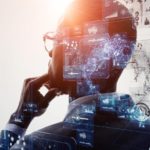 With AI-based tools likely to be used alongside employees rather than instead of them, a recent study from the University of Georgia offers some interesting pause for thought. The study, which was conducted in Taiwan, Indonesia, Malaysia, and the United States, found that using AI can increase the likelihood of insomnia, drinking, and loneliness.
With AI-based tools likely to be used alongside employees rather than instead of them, a recent study from the University of Georgia offers some interesting pause for thought. The study, which was conducted in Taiwan, Indonesia, Malaysia, and the United States, found that using AI can increase the likelihood of insomnia, drinking, and loneliness.
“The rapid advancement in AI systems is sparking a new industrial revolution that is reshaping the workplace with many benefits but also some uncharted dangers, including potentially damaging mental and physical impacts for employees,” the researchers explain. “Humans are social animals, and isolating work with AI systems may have damaging spillover effects into employees’ personal lives.”
Unintended consequences
Working with AI systems can yield certain advantages. Employees who engage with AI systems on a regular basis are more inclined to extend assistance to their colleagues. However, this inclination may arise from their experience of loneliness and the consequent desire for social interaction.
Additionally, the studies reveal that individuals with higher levels of attachment anxiety, characterized by feelings of insecurity and concern regarding social connections, exhibit more pronounced responses when working with AI systems. These responses encompass both positive reactions, such as aiding others, and negative ones, such as feelings of loneliness and insomnia.
To explore these dynamics further, one experiment involved surveying 166 engineers employed at a Taiwanese biomedical company over a three-week period. The engineers were assessed on their levels of loneliness, attachment anxiety, and sense of belonging.
Colleagues rated individual participants on their helpful behaviors, while family members reported on their experiences of insomnia and after-work alcohol consumption.
Frequency of use
The results indicated that employees who interacted more frequently with AI systems were more susceptible to loneliness, insomnia, and increased alcohol consumption after work. Nevertheless, these individuals also demonstrated a proclivity for assisting their fellow employees.
Another experiment involved 126 real estate consultants working at an Indonesian property management company. Half of the consultants were instructed to abstain from using AI systems for three consecutive days, while the other half were encouraged to engage with AI systems as frequently as possible.
The findings mirrored those of the previous experiment, except that no correlation was found between the frequency of AI use and after-work alcohol consumption. Similar findings emerged from online experiments involving 214 full-time working adults in the United States and 294 employees at a Malaysian tech company.
Correlation rather than causation
It is important to note that these research findings establish correlations rather than causal relationships between work with AI systems and experiences of loneliness or other associated responses.
The researchers suggest that developers of AI technology should consider incorporating social features into AI systems, such as a human-like voice, to emulate interpersonal interactions. Additionally, employers could restrict the frequency of AI system usage and provide opportunities for employees to engage in social activities.
“Mindfulness programs and other positive interventions also might help relieve loneliness,” the authors conclude. “AI will keep expanding so we need to act now to lessen the potentially damaging effects for people who work with these systems.”